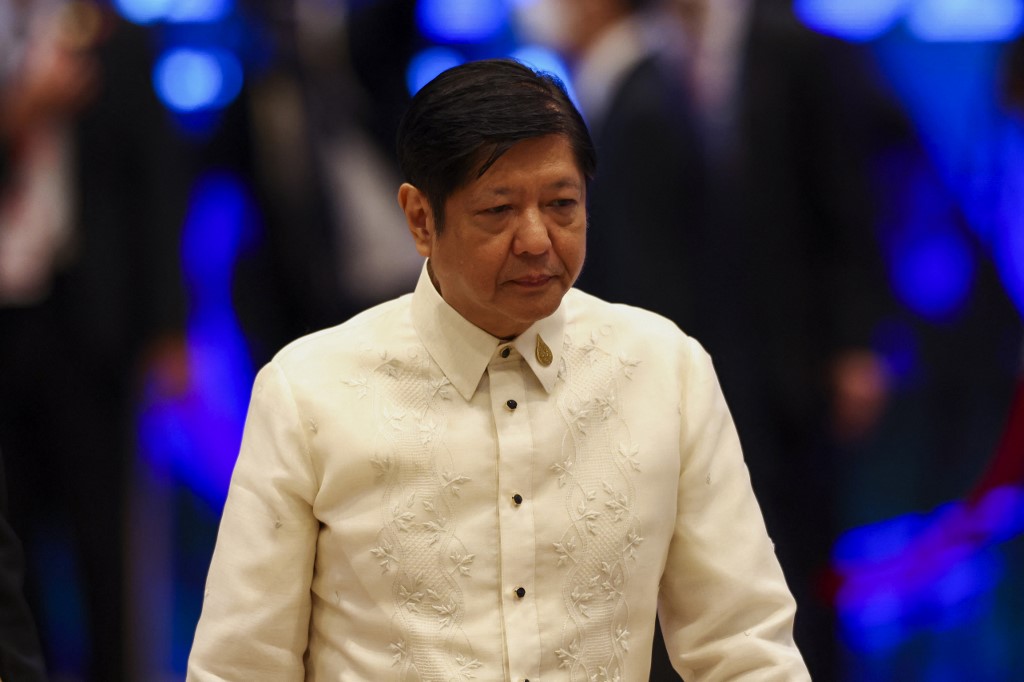Marcos Jr. confident PH will avoid recession

FILE PHOTO: President Ferdinand Marcos Jr . AFP
President Ferdinand Marcos Jr. said he was confident that the Philippines would not fall into an economic recession despite surging inflation, which reached a 14-year high of 8 percent in November.
In a video message released by the Office of the Press Secretary on Thursday, the President said he was relieved that the unemployment rate in the country eased to 4.5 percent in October from 5 percent in September.
“So somehow we are confident that we will not have a recession here in the Philippines because the unemployment rate is too low and if you remember, at the start of my administration, we were already discussing prioritizing jobs. So that is what is happening. We will just continue with that,” he said.
A recession is characterized mainly by a sharp decline in economic activity that can last years. Economists technically define a recession as two consecutive quarters of contraction in gross domestic product (GDP), a measure of economic activity. During a recession, unemployment rises, consumer sales decline, and manufacturing output falls.
Mr. Marcos added that the government was working to cushion the impact of high consumer prices, particularly on poor Filipinos.
“Expect that we will do everything we can to lower the inflation rate and make the price increase (of basic goods and services) at least slower,” he said.
According to the Philippine Statistics Authority (PSA), the 4.5 percent inflation rate in October this year was lower than the 7.4 percent in October 2021.
The PSA also reported that the number of unemployed Filipinos decreased to 2.24 million in October from 3.5 million last year.
The PSA also said that the employment rate in October rose to 95.5 percent, from 95 percent in September, which was the highest rate recorded since January 2020.
Inflation causes
Last November, Finance Secretary Benjamin Diokno also assured Filipinos that the country would not go into a recession despite projections that the global economy was headed into one.
“I can assure you, your honor, that given the data that we have, under very extreme conditions, we will not have a recession because we have a very young population,” Diokno told lawmakers during a Commission on Appointments committee hearing on his ad interim appointment.
“I can assure you, given our focus on agriculture, we restored mining, our industry and manufacturing are working well, we have opened up the (market for migrant workers), and we have increased the quality of our overseas workers, I don’t think we’ll have a recession,” said.
On Tuesday, the President told an economic forum hosted by the Joint Foreign Chambers (JFC) of the Philippines that while inflation was “running rampant and out of control,” the country was still on track “to maintain a strong economic performance” and achieve the government’s growth target of 6.5 to 7.5 percent for this year.
“We are now trying to identify the areas of the economy that are the main drivers of that inflation,” he said, admitting that “the main drivers, unfortunately, are still imported inflation. So again import substitution is still a good idea not only for foreign exchange reserves but also so that we can keep our inflation rate down.”
The President also noted that the country continues to recover from the pandemic, pointing out that “our growth rate looks healthy, our peso has become a little stronger, [and] our unemployment rate is quite reasonable, considering the situation.”
Strong growth
Latest data from the PSA showed that the Philippine economy grew by 7.6 percent in the third quarter of 2022, faster than 7 percent in the same period of 2021 and 7.5 percent in the second quarter this year.
National Statistician Dennis Mapa said the country’s output of goods and services grew for the sixth quarter in a row.
Before that, Philippine GDP suffered five consecutive quarters of decline—from -0.7 percent in the first quarter of 2020 at the onset of the pandemic, bottoming at -16.9 percent in the second quarter that year, until -3.8 percent in the first quarter of 2021.
In July to September this year, all the three major economic sectors showed growth—agriculture (2.2 percent), industry (5.8 percent), and services (9.1 percent).
In particular, wholesale and retail trade businesses (up 9.1 percent) were among the main contributors along with financial and insurance activities (7.7 percent), and construction, (12.2 percent).
Economic Planning Secretary Arsenio Balisacan said the latest economic readout placed the Philippines second in the region after Vietnam (13.7 percent) and ahead of Indonesia (5.7 percent) in terms of economic growth.
“This turnout signifies that Filipino families are close to returning to prepandemic life, as more people visit restaurants and hotels and engage in recreational activities within the country,” Balisacan said.
RELATED STORY: